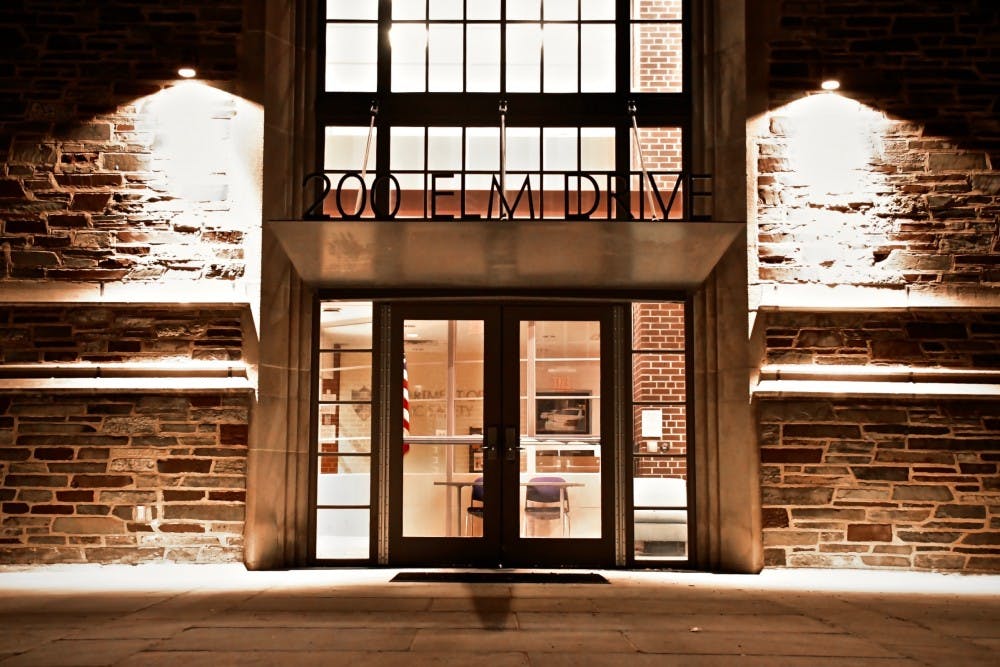In recent months we have seen, over and over, Black and brown people subjected to terrible treatment by police officers — too often dying at the hands of those tasked with protecting our communities. And too many police departments are solely focused on enforcement actions such as traffic stops, stop-and-frisk, drug arrests, and violent responses to peaceful protesters. All of this goes against what I believe as a public safety professional.
When I arrived at Princeton in 2010 to lead the Department of Public Safety, I brought a new philosophy I call “Community Caretaking.” This approach changes the focus of policing from enforcement to service to the community. I firmly believe Community Caretaking can serve as a model for the nation's police organizations and help fix some of what is broken in American law enforcement.
DPS officers are a part of this community; their primary role is to serve and be a resource for students, faculty, and staff both on- and off-campus 24/7/365. For example, DPS officers serve as liaisons to many athletic groups, the residential colleges, eating clubs, and other groups. While we do enforcement when necessary, it most often comes in the form of a referral to the appropriate dean for policy violations rather than an arrest. Partnership is key: DPS and the community can work together to keep the community safe.
The team at DPS — known by many students as PSafe —does its work quietly and without fanfare. So you may not know much about what we do on a day-to-day basis unless you’ve needed assistance with a lockout or transportation to UHS, were the victim of a crime, or sought help for a friend or colleague.
Since President Eisgruber issued his call to action to combat systemic racism, our entire department has spent time thinking about improving Community Caretaking, and we are developing plans for the next evolution of our approach, Community Caretaking 2.0. As we go down this path, it is important to get feedback from the community.
And although our department works with many campus organizations and sits on numerous University committees, there has not been a specific campus community group established to think about Public Safety. But we want more community feedback, and I want to respond to calls from some in the University community for changes in our department.
So I am excited to announce that I have formed a Public Safety Community Advisory Committee. The Committee membership includes three faculty members, three graduate students, three undergraduate students, three administrators, and three staff from DPS who will sit with the committee as resources. The committee’s goal is to provide feedback, advice, and suggestions to Public Safety about our services and programs. It will be led by Co-Chairs Laurence Ralph, a professor of anthropology who has focused his research on police violence against Black and brown people, and LaTanya Buck, dean for diversity and inclusion.
Importantly, the co-chairs will independently set the direction and develop topics of inquiry and recommendations for the committee. In addition, DPS will bring some initiatives to the committee for review.
It is my hope that the committee will provide community feedback about programs, training, and many other aspects of the department. We will also discuss further steps we can take to reinforce our commitment to transparency, accountability, and data sharing.
Members of the community interested in contacting the committee with feedback, concerns, or ideas about any aspect of DPS can reach the advisory committee directly by emailing PSAFECommittee@princeton.edu. As a reminder, the DPS website contains information and forms to file a complaint against an officer (including an option to do so anonymously), to compliment an officer, and to review data about Internal Affairs Investigations, as well as Clery crime and fire data. The DPS website is https://publicsafety.princeton.edu.
It has been my honor and privilege to lead DPS and keep the community safe for almost eleven years. While I believe in the good work done by the team in Public Safety, I recognize this is an important moment in our country to have substantive discussions about policing — including campus policing. While I believe we are distinctive in our Community Caretaking focus, we still need the feedback from our community and this new Public Safety Advisory Committee.
Paul Ominsky serves as Assistant Vice President for Public Safety at the University. He can be reached at pominsky@princeton.edu.









